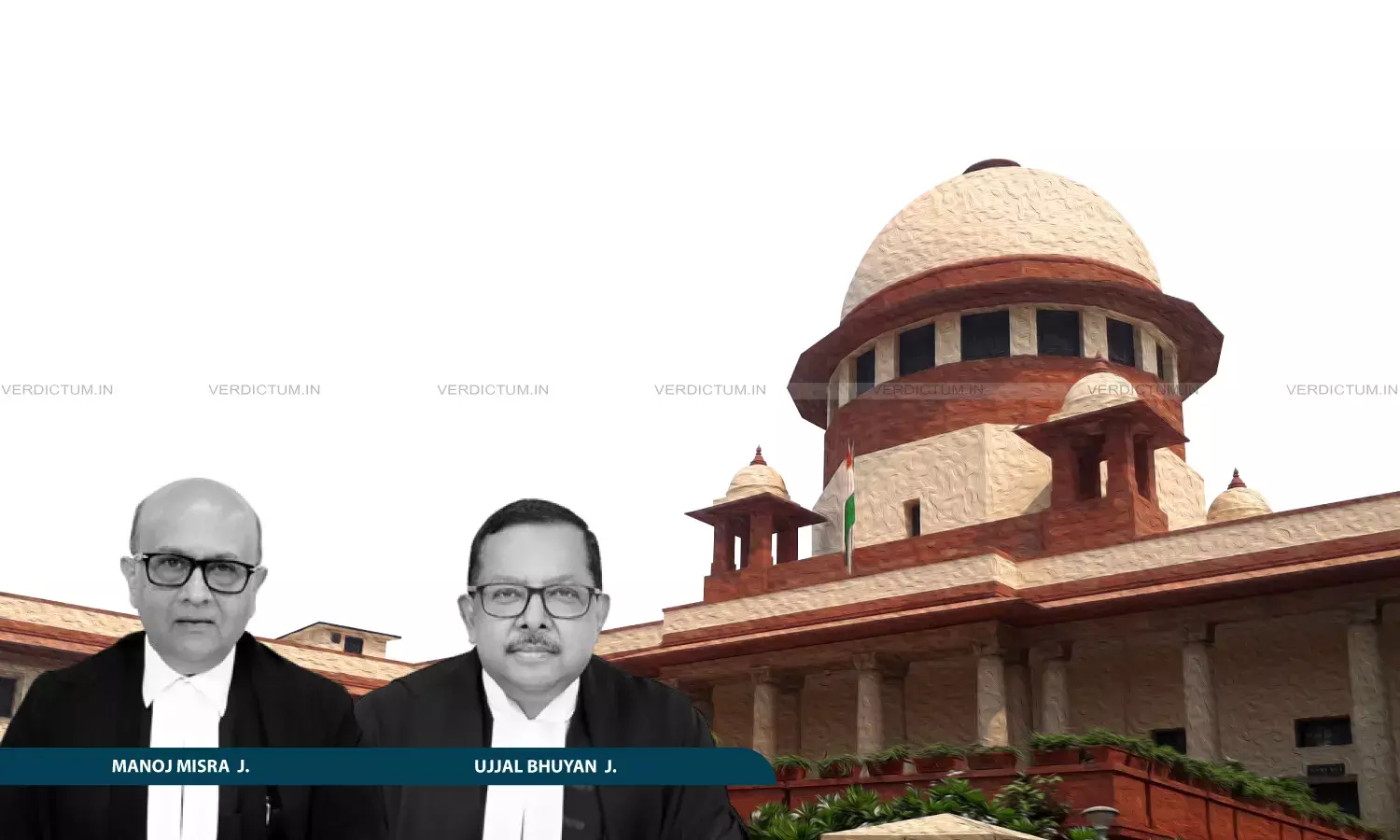Doctrine Of Merger Doesn't Have Rigid & Universal Application: Supreme Court Asks Litigant To Approach High Court In Contempt Case
The Contempt Petition before the Supreme Court alleged willful disobedience of an earlier order passed in a Civil Appeal.

Justice Manoj Misra, Justice Ujjal Bhuyan, Supreme Court
While giving liberty to an aggrieved litigant to initiate contempt proceedings before the High Court, the Supreme Court has held that the doctrine of merger is not a doctrine of rigid and universal application and it cannot be said that wherever there are two orders, one by inferior court or tribunal and the other by superior court or tribunal, passed in an appeal or revision, there is fusion or merger of two orders irrespective of the subject matter of such orders.
The Contempt Petition before the Apex Court alleged willful disobedience of an earlier order passed in a Civil Appeal.
The Division Bench of Justice Manoj Misra and Justice Ujjal Bhuyan held, “...the doctrine of merger is not a doctrine of rigid and universal application and it cannot be said that wherever there are two orders, one by inferior court or tribunal and the other by superior court or tribunal, passed in an appeal or revision, there is fusion or merger of two orders irrespective of the subject matter of the appellate or revisional order and the scope of appeal or revision contemplated by the particular statute.”
Factual Background
The Civil Appeal was filed against an order of a Division Bench of the Allahabad High Court passed in an intra court appeal against an order of Single Bench. Though the intra court appeal was dismissed, certain observations were made therein which, according to the petitioner, made petitioner’s position worse than what it was after the order of Single Judge. This order was challenged before the Apex Court by seeking leave to appeal.
The Court granted leave to appeal, and the counsel for the appellant instead of pressing the appeal on merits made a statement that he may be permitted to withdraw the intra court appeal that was filed before the Division Bench of the High Court so that his position as obtaining under the order of the Single Judge of the High Court was restored. The prayer was accepted by the Court and the appeal was disposed of by observing that the intra court appeal preferred before the Division Bench of the High Court would be withdrawn and parties would work out their respective rights in terms of the order of the Single Judge. The contempt petition thus came to be filed alleging that the contemnor respondents had not complied the order of the Single Judge as restored by the Apex Court’s order.
Arguments
One of the arguments raised by the petitioner was that as the order of the Apex Court was passed after grant of leave, the doctrine of merger would apply and, therefore, the contempt would lie before the Apex Court.
Reasoning
The Bench did not accept the said submission and held that the doctrine of merger is not a doctrine of rigid and universal application.
Reference was made to the judgment in State of Madras v. Madurai Mills co. Ltd., (1966) where a three-Judge Bench held that application of the doctrine of merger depends on the nature of the appellate or revisional order in each case and the scope of the statutory provisions conferring the appellate or revisional jurisdiction.
Considering that the Court had allowed the petitioner to withdraw the intra-court appeal in which the order under challenge in the appeal before the Apex Court was passed, the Bench stated, “As a result, once the appeal before the Division Bench of the High Court stood withdrawn, so did all orders passed therein. Once that is the position, by fiction of law the parties would stand relegated to the stage at which they were on the date of filing of the intra court appeal. In such circumstances, the order of the learned Single Judge of the High Court would operate from the date of this Court’s order as if it had never been challenged.”
The Bench was thus of the the view that contempt, if any, would lie before the High Court. “We, accordingly, deem it appropriate to dispose of this contempt petition by giving liberty to the petitioner to initiate contempt proceedings before the High Court if the order of the Single Judge of the High Court has been violated, as is alleged”, it ordered.
Cause Title: M/S Khurana Brothers v. Anand Bardhan Principal Secretary (Neutral Citation: 2025 INSC 1240)

